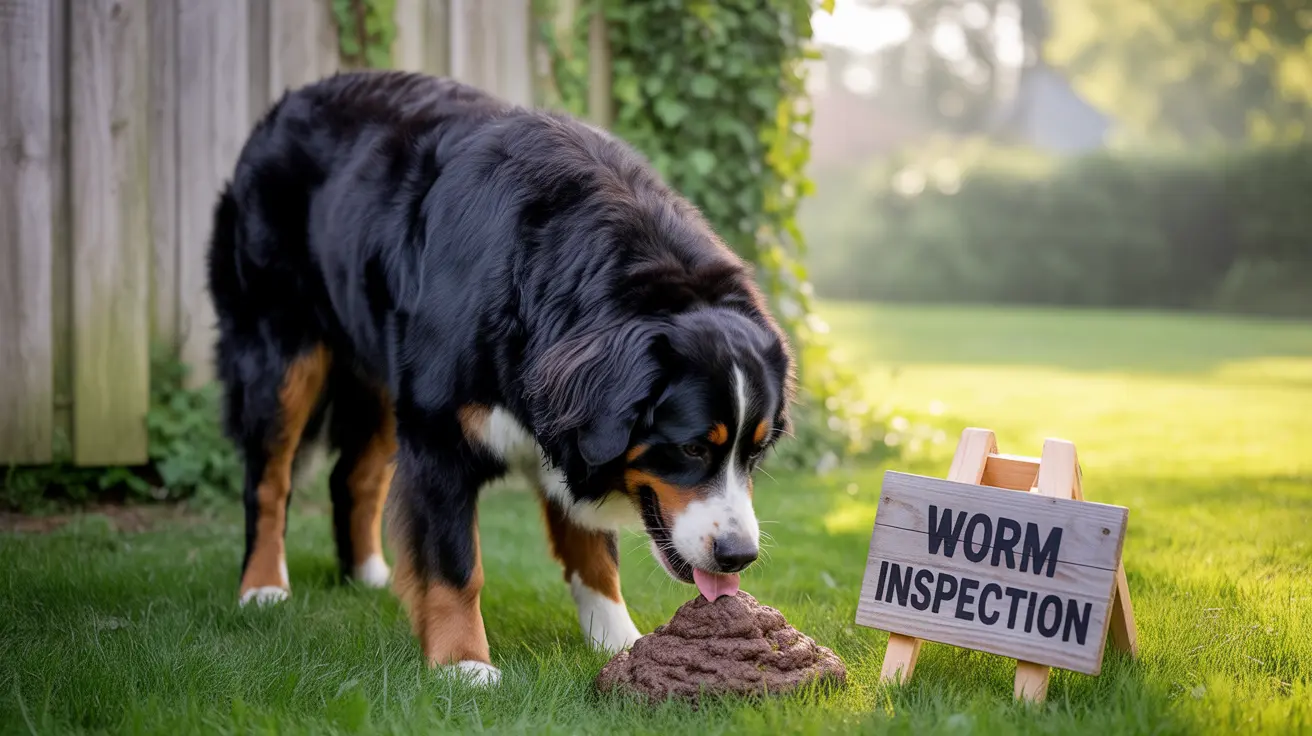Finding worms in your dog's poop can be alarming for any pet owner. These unwanted parasites are not only unsightly but can also pose serious health risks to your beloved canine companion. Understanding how to identify, treat, and prevent worm infestations is crucial for maintaining your dog's wellbeing and protecting your family's health.
In this comprehensive guide, we'll explore everything you need to know about dealing with worms in dog poop, from identification to treatment options, helping you take prompt and effective action when needed.
Common Types of Worms You Might Find in Dog Poop
Roundworms
Roundworms are the most prevalent intestinal parasites in dogs, appearing as light-colored, spaghetti-like strands in feces. These parasites are particularly common in puppies and can grow up to several inches long. They can cause serious health issues, especially in young or immunocompromised dogs.
Tapeworms
Tapeworms appear as small, white, rice-like segments in dog feces or around the anal area. They're typically acquired when dogs ingest infected fleas or small prey animals. While less dangerous than some other parasites, tapeworms can still cause discomfort and nutritional issues.
Hookworms
Though microscopic and rarely visible in feces, hookworms are dangerous blood-sucking parasites that can cause severe anemia. They're particularly threatening to puppies and can enter through the skin or digestive tract.
Signs Your Dog May Have Worms
Beyond visible worms in feces, watch for these common symptoms:
- Pot-bellied appearance, especially in puppies
- Unexplained weight loss despite normal appetite
- Diarrhea, sometimes containing blood
- Vomiting, occasionally with visible worms
- Dry, dull coat
- Scooting or dragging their bottom
- Lethargy or weakness
Diagnosis and Treatment Options
If you suspect your dog has worms, veterinary examination is essential. Your vet will likely perform a fecal test to identify the specific type of worms present. This precise diagnosis ensures the most effective treatment approach.
Treatment typically involves appropriate deworming medications, which may need to be administered multiple times to ensure all parasites are eliminated. Your veterinarian will recommend the most suitable deworming protocol based on the type of worms identified and your dog's specific situation.
Prevention Strategies
Preventing worm infestations is far better than treating them. Key preventive measures include:
- Regular deworming treatments as recommended by your veterinarian
- Monthly heartworm preventatives that also protect against other worms
- Prompt removal of feces from your yard
- Regular flea prevention (to prevent tapeworms)
- Routine veterinary check-ups including fecal testing
Frequently Asked Questions
How do I identify worms in my dog's poop?
Look for white, spaghetti-like strands (roundworms), rice-like segments (tapeworms), or unusual changes in stool consistency. Some worms may be visible to the naked eye, while others require microscopic examination by a veterinarian.
What are the common symptoms of worms in dogs?
Common symptoms include visible worms in stool, weight loss, pot-bellied appearance, diarrhea, vomiting, lethargy, and a dull coat. Some dogs may show no obvious symptoms while still harboring worms.
How do I treat worms in my dog's poop, and what medications are available?
Treatment requires veterinary-prescribed deworming medications specific to the type of worm present. Never attempt to treat worms with over-the-counter medications without veterinary guidance, as proper diagnosis is essential for effective treatment.
Can I prevent worms in my dog's poop, and if so, how?
Yes, prevention is possible through regular deworming treatments, monthly preventatives, proper sanitation, and routine veterinary check-ups. Maintain a clean environment by promptly removing feces and controlling flea populations.
What are the risks of worms in dog poop to human health, and how can I protect my family?
Some dog worms can infect humans, particularly children. Protect your family by practicing good hygiene, washing hands after handling pets or soil, promptly cleaning up dog waste, and maintaining regular veterinary care for your pet.
Remember, while finding worms in your dog's poop can be concerning, prompt veterinary attention and proper treatment will help ensure your pet's quick recovery and continued good health.






